At a self-defense class in New York after the latest anti-Asian attack, one student said, “I feel like I have an army of sisters.”
A year has passed since the senseless slaughter of six women of Asian descent at three spas in Atlanta, Georgia. In the time since, instances of Asian Americans being murdered, punched, kicked, spit on, and verbally assaulted have soared across the country, especially in cities with sizable Asian populations. In New York, a hundred and thirty-one bias incidents against Asians were recorded by the police in 2021, up from twenty-eight in 2020 and three in 2019. So far, this year has been no better. In January, Michelle Alyssa Go was fatally shoved onto the tracks at the Times Square subway station. In February, Christina Yuna Lee was stabbed more than forty times by a man who stalked her to her Chinatown apartment, and GuiYing Ma, who was struck in the head as she swept a Queens sidewalk in November, died of her injuries. On March 11th, a sixty-seven-year-old woman was pummeled in the face and head more than a hundred and twenty-five times. Before the attack, her assailant called her an “Asian bitch.”
“I am an Asian American woman but I am not as weak, timid, or quiet as society has made me out to be,” Michelle Tran, a second-generation Chinese-Vietnamese American told me. A Los Angeles native who moved to New York to attend medical school, Tran volunteers as a mentor for Chinatown youths. In 2021, she was brainstorming ideas for a community project with her teen-aged mentee, Tiffany Yuen, when they came up with Soar Over Hate, an initiative devoted to gathering resources for the community in the face of escalating anti-Asian violence. What began as a modest GoFundMe page to raise two thousand dollars has, in the time since, become an energetic nonprofit, with more than three hundred volunteers who have collectively equipped tens of thousands of Asian Americans across New York and California with self-defense devices.
Last week, when Soar Over Hate held an event to distribute pepper spray and personal alarms to Asian women in Chinatown, the line stretched more than three blocks. “You can either sit and watch the news or come out and create something that helps others heal,” Tran said. This past Saturday, not far from the Chinatown apartment where Christina Yuna Lee was murdered, fifty Asian American women and femmes, ranging in age from fourteen to sixty-four, gathered for a free self-defense class organized by Soar Over Hate, the New York chapter of O.C.A., and Two Bridges Muay Thai, a local studio. The New Yorker was there to interview some of those who attended. “It’s been a long and tiring year,” Tran said. “But I’m not tired.”
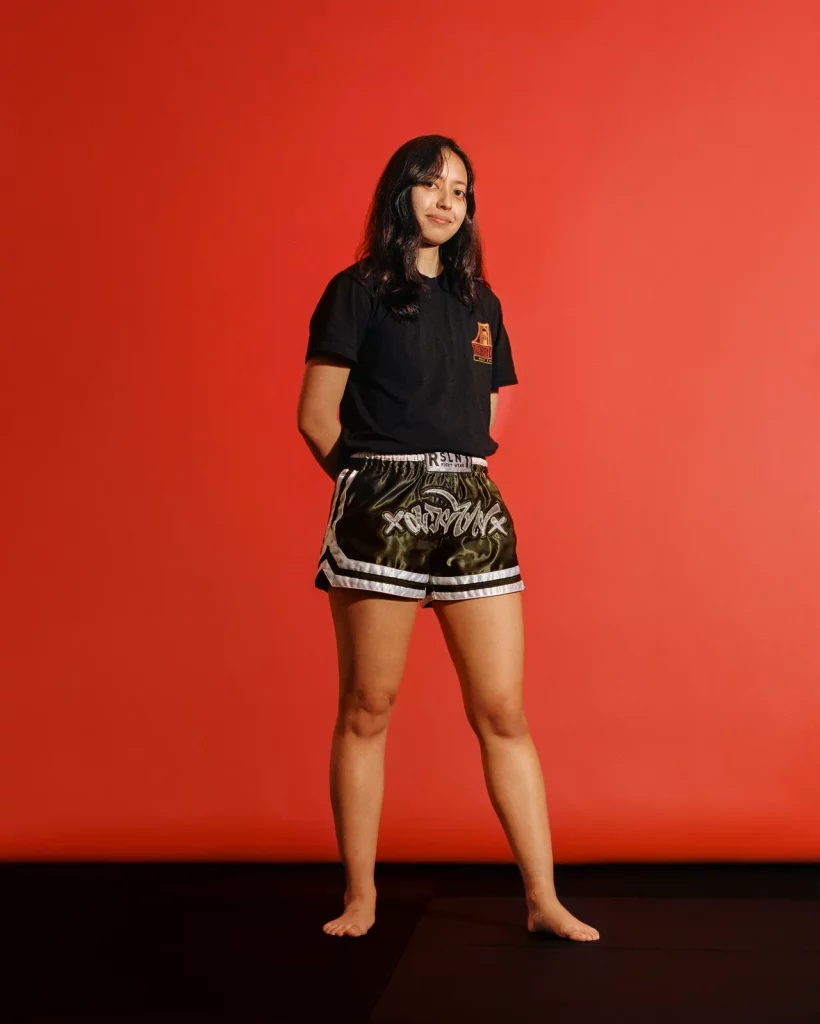
Brianna Cea, voting-rights youth organizer, age twenty-four
I’m the president of the New York chapter of O.C.A. Asian Pacific American Advocates, a nonprofit civil-rights organization. Christina Yuna Lee was killed the day O.C.A. was conducting its retreat in Chinatown, when we were brainstorming what we could do to uplift the community against the surge of violence. To know that someone who looked like me was murdered two blocks from where I was—it was devastating and difficult to process. Leaving the retreat that night in Chinatown, I had never been more scared in my life.
It’s been one year since the Atlanta shootings. It kind of feels like déjà vu.
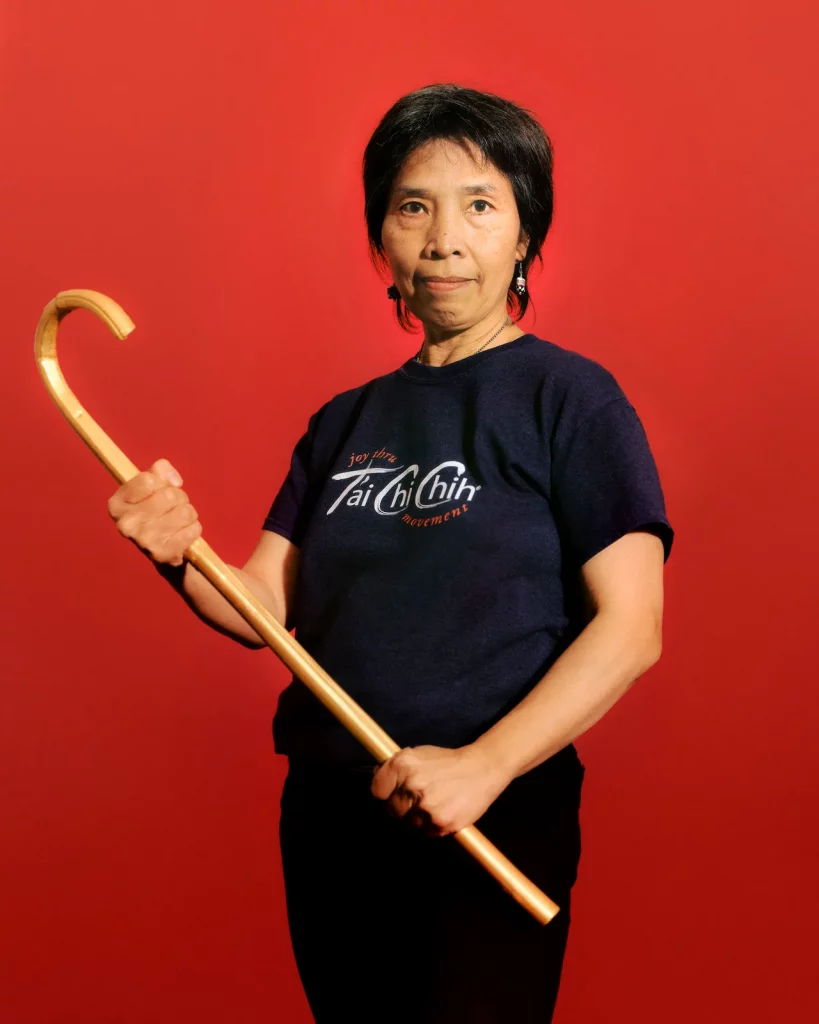
Sokie Lee, Tai Chi and Qigong teacher, age sixty-three
Tell me about your stick.
I call it my social-distancing stick and my self-defense stick. I always carry one around with me.
How long have you been teaching martial arts?
Since 2007. I like to emphasize prevention. I always say, “Don’t fight if you can help it because nothing good comes out of fighting.” I grew up in a tough neighborhood in the Bronx and was assaulted eleven times when I was young. That taught me to be aware at all times. I am a survivor.
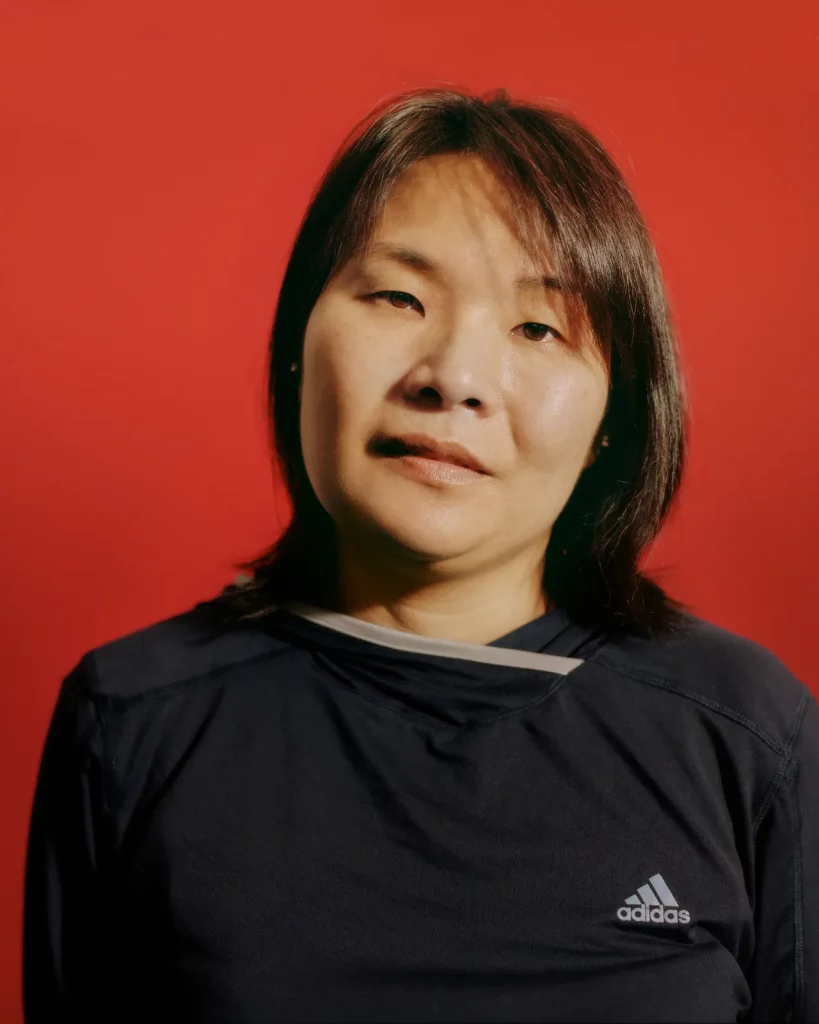
Eva Chan, insurance broker, age forty-one
I live and work in Chinatown. Earlier this week, when I was taking my morning walk, a man followed me for several blocks. Then, last December, I went to the farmers’ market, and this guy stopped me and said, “Can I ask you a question?” Then he said, “Why do people of your kind come to America to kill us?” I tried to walk away, and he followed me for two blocks. I don’t go out at night now. My cutoff for being outside is 6 or 7 p.m.
How do you think Chinatown has changed?
I came to this country at the age of six. In the old days, the biggest danger in Chinatown was gangs. But the danger now feels different: unprovoked and senseless. It’s always like you might be injured or worse just for looking at someone the wrong way. New York used to be a place where I could take the train at 2 a.m. Now it’s a place that constantly makes me look over my shoulder.
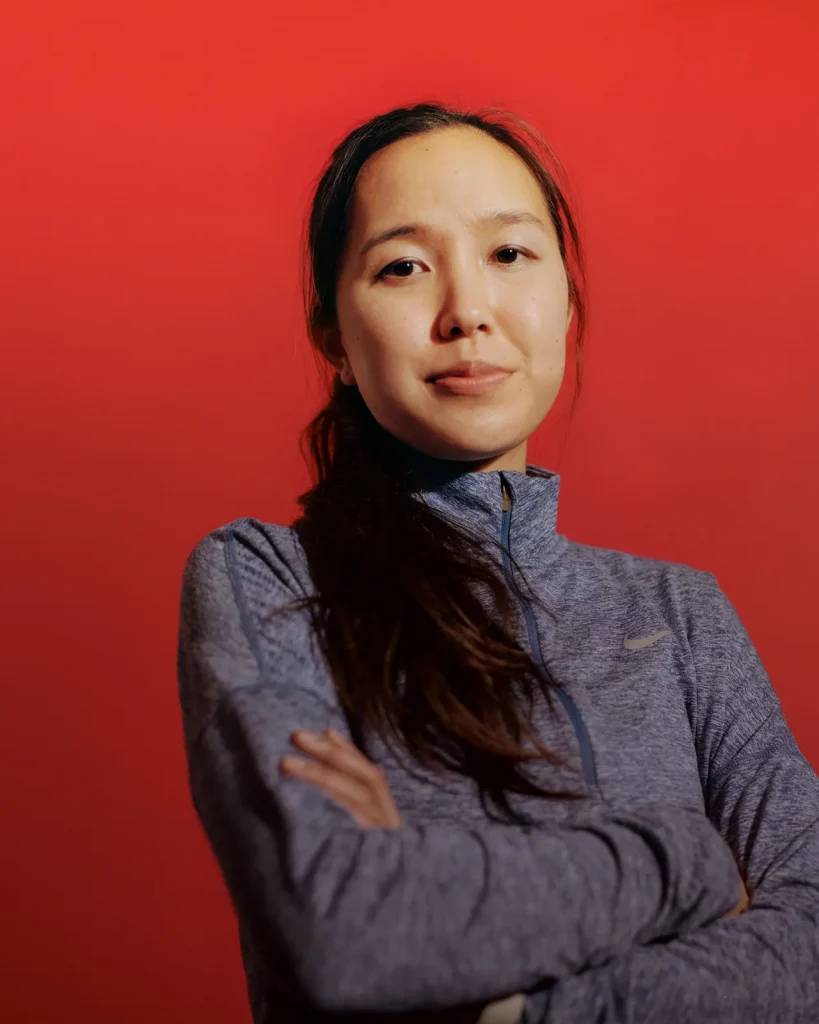
Michelle Tran, co-founder of Soar Over Hate, age-twenty-five
How has this year of violence changed your daily habits?
I feel scared, even more scared in the last few months with the brutal murders of Christina Yuna Lee, Michelle Alyssa Go, and GuiYing Ma. I barely walk around in the dark, and I carry my pepper spray and alarm with me at all times. I take the subway during the day. I don’t wear earphones and try not to look at my phone. I keep my finger on the trigger of my spray. When it’s late, I Uber. But I know a lot of people can’t afford to Uber. It makes me feel both vulnerable and angry that people see us as targets. As a young Asian American woman, I am proud of my identity. And I want to show the world we can protect ourselves.
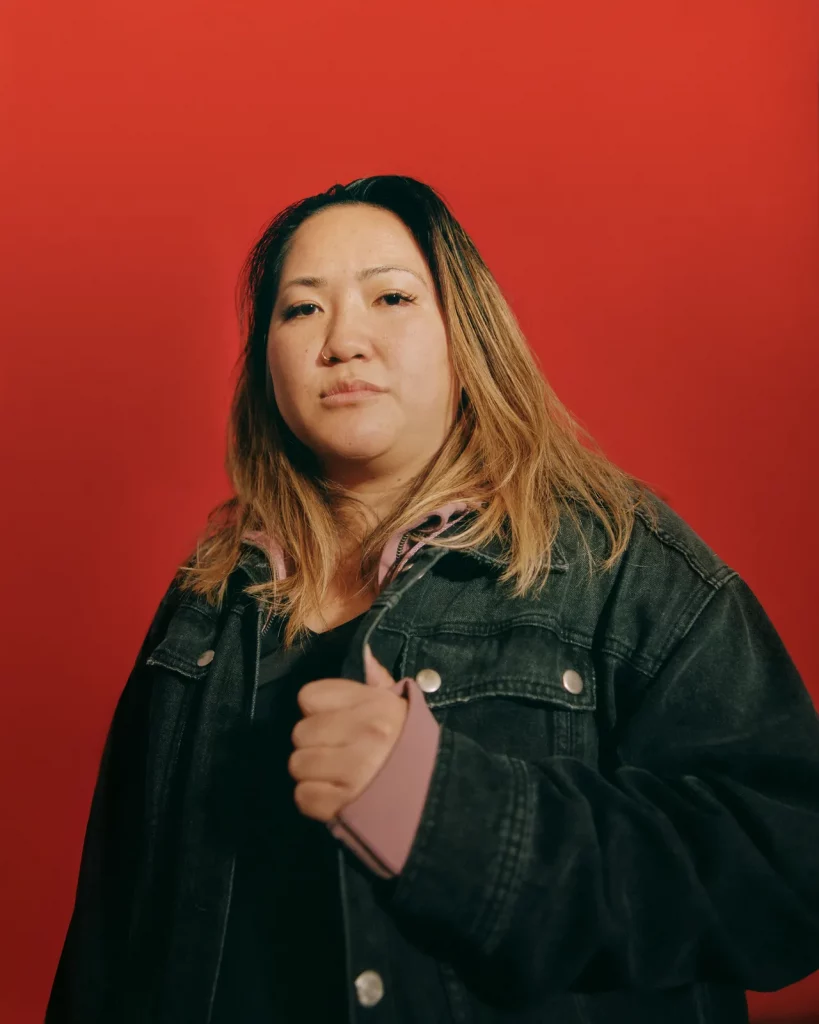
Tammy Wang, high-school teacher, age thirty-five
I’ve practiced martial arts before, but a self-defense class is different. It’s empowering to see a room full of women who look like me learning how to protect themselves. I don’t want to be afraid anymore.
What’s something unexpected that you learned in the class?
That what’s most critical is not the fighting. The instructor taught us how to stand steady on our feet. It’s about understanding our bodies and how to best carry ourselves with awareness and readiness.
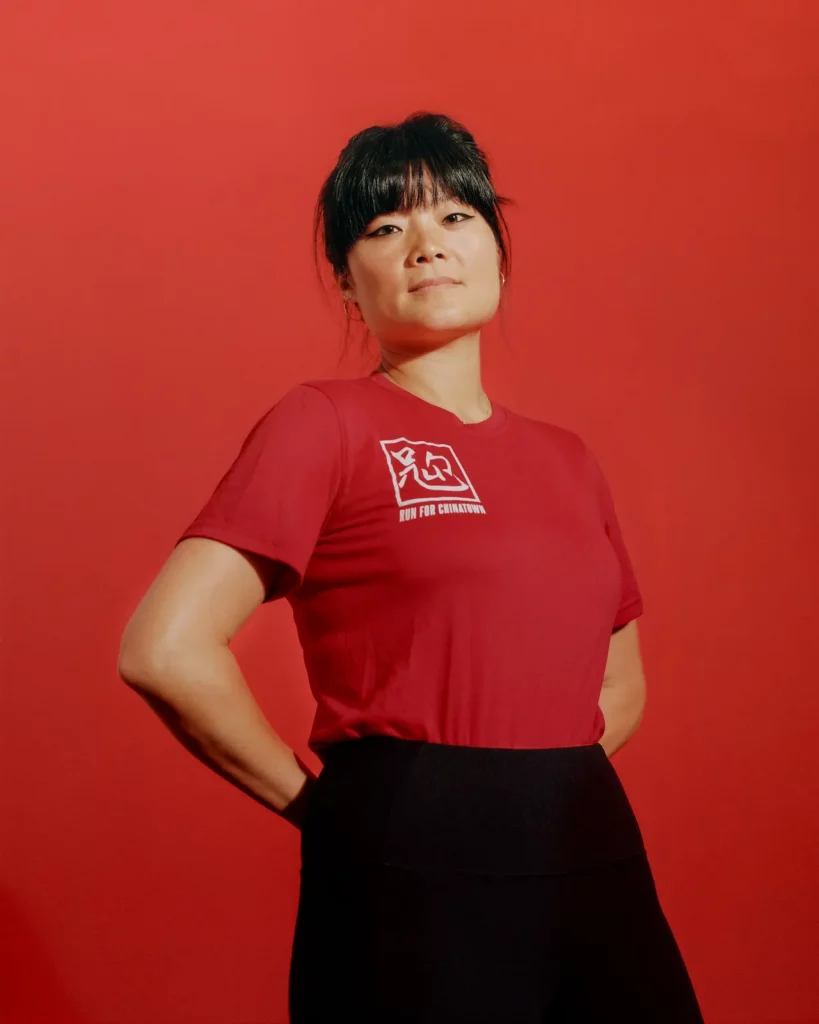
Elizabeth Yan, hedge-fund manager, age thirty-six
I love running and used to run by myself. I stopped for two years during the pandemic because I had this vision that a car was going to try to hit me because of what I looked like. When you walk out the door, you can’t take off your face. I hated not feeling safe enough to run. In the isolation of covid, running was all I had to keep my sanity.
Have you started running again?
Yes. I’m on the leadership team for Run for Chinatown. I was never a group runner; I was always running solo. Now, with this community of people who come to run, every Monday night, anywhere from sixty to eighty majority-Asian folks are running together. There is this strength of people being able to do that. Still, one night when we were running, someone harassed us and tried to pull one of the runners away from the group. She backed up and yelled, “Stop!” He stopped, we believe, because we significantly outnumbered him.
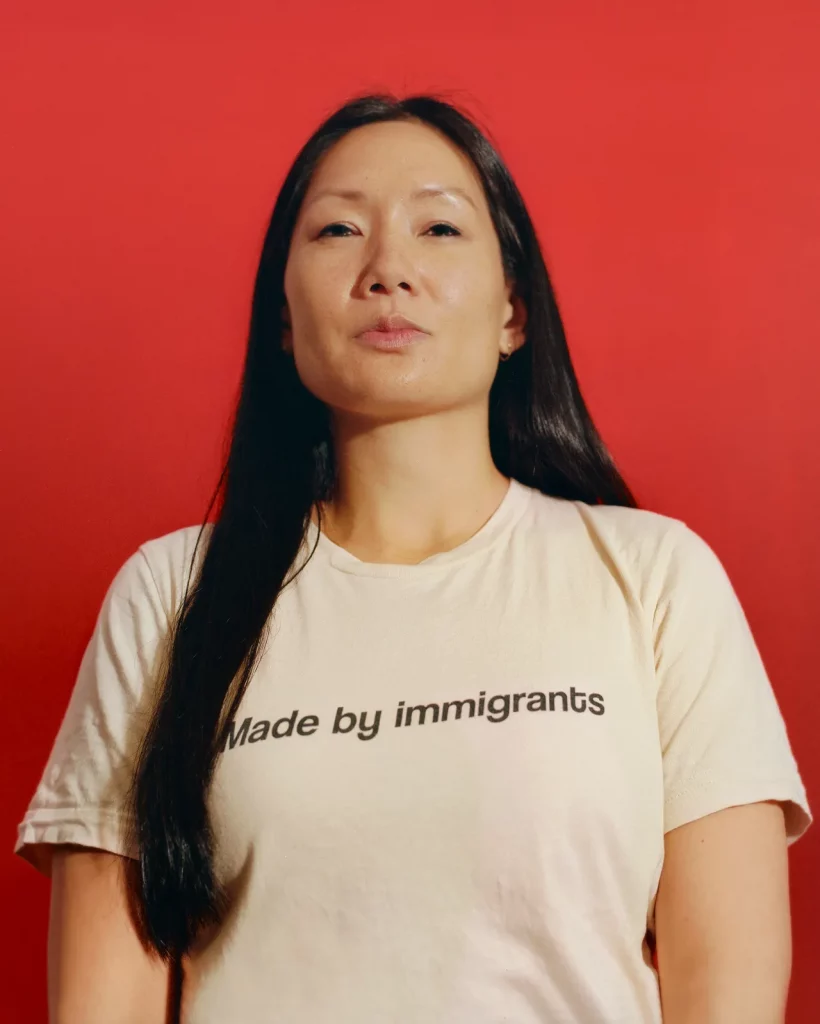
Alberta Yan, corporate lawyer, age thirty-four
Are you surprised by the recent violence?
Racism has always been a part of the Asian American experience. Prior to covid, I was stopped by a traffic officer while biking. He told me I ran a red light, and then he asked me if I was from this country and tried to arrest me. I was surrounded by eight police officers, a few of whom asked me again and again if I was from this country. What’s ironic is that I had been on my way to the office to help a pro-bono client who was due in immigration court.
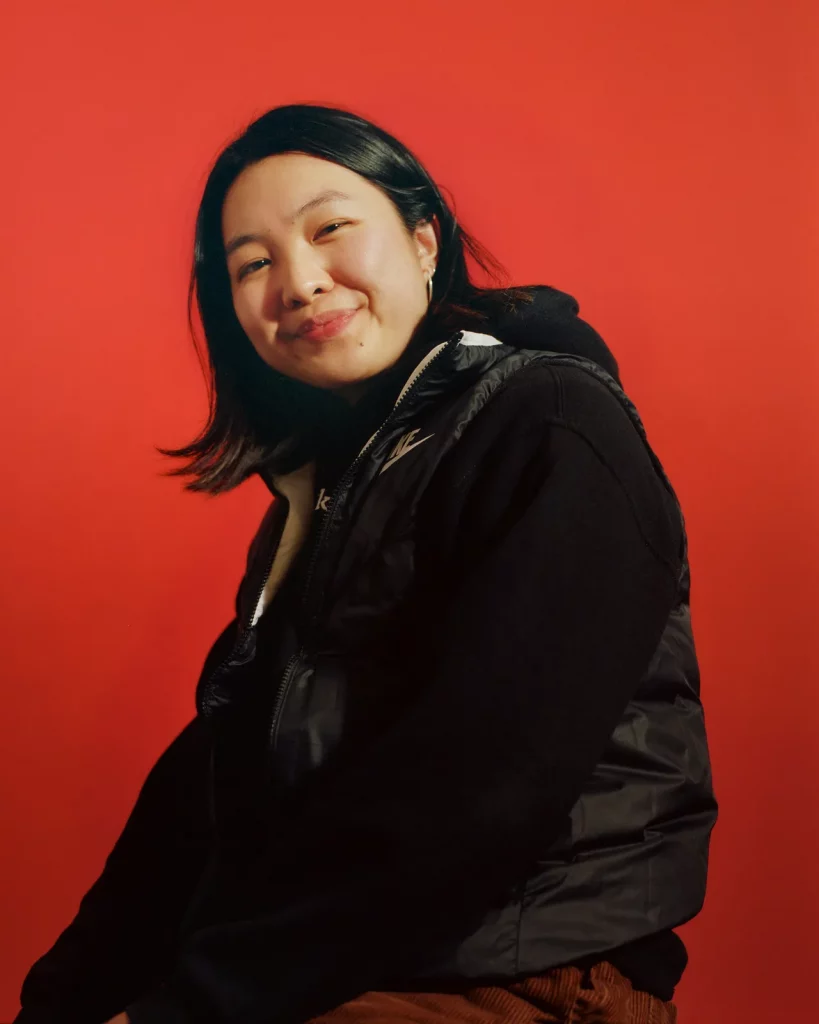
Vinnie Zhang, Web developer, age twenty-four
What has changed in the past few years?
The most dramatic change is the sense of change in myself. I am aware of my own fear when I’m alone. I am aware of my own perception of other people as sources of harm. Whenever a man passes me on the subway platform, I instinctively back up against a wall.
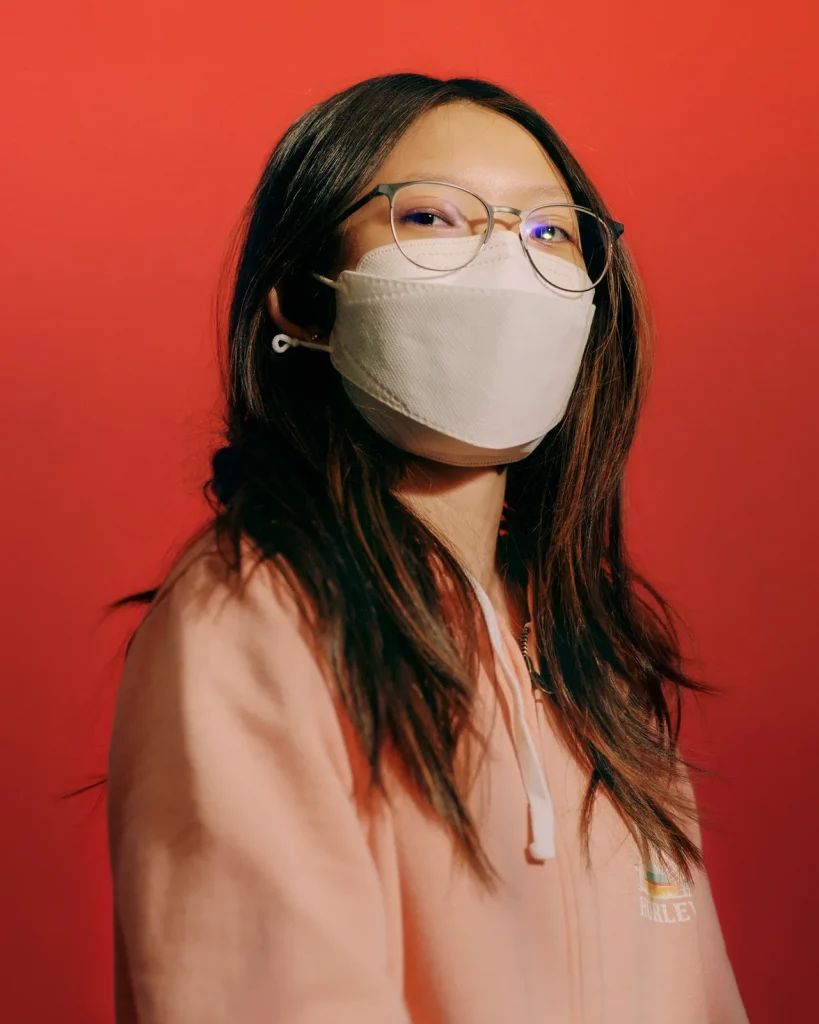
Tiffany Yuen, student and co-founder of Soar Over Hate, age fourteen
Have you been affected by the uptick in violence?
I hear about it all over the news, but we never really talk about it in school. My mom always has pepper spray hanging from her bag. She’s nervous about me going out alone, so I mostly hang out with friends.
Do you have any safety devices?
I have a personal alarm but no pepper spray, because it’s illegal for those under eighteen.
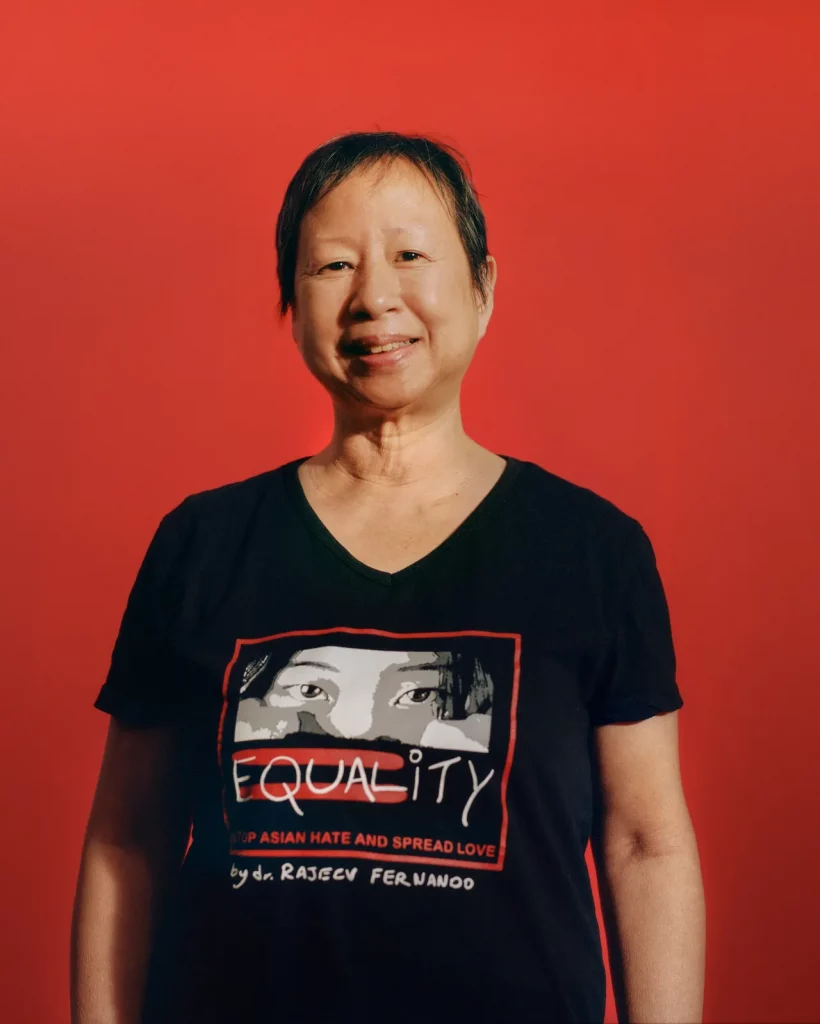
Elizabeth OuYang, civil-rights lawyer, age sixty-one
What do you see as the reasons behind the pervasive hate crimes against Asian American women?
One is misogyny. Another is the perception of Asians as docile, timid, and unwilling to report crimes. And, unfortunately, the criminal-justice system is not always the way to resolve them, because the exact motivation of a perpetrator can be hard to know and even harder to prove. Unconscious biases run deep.
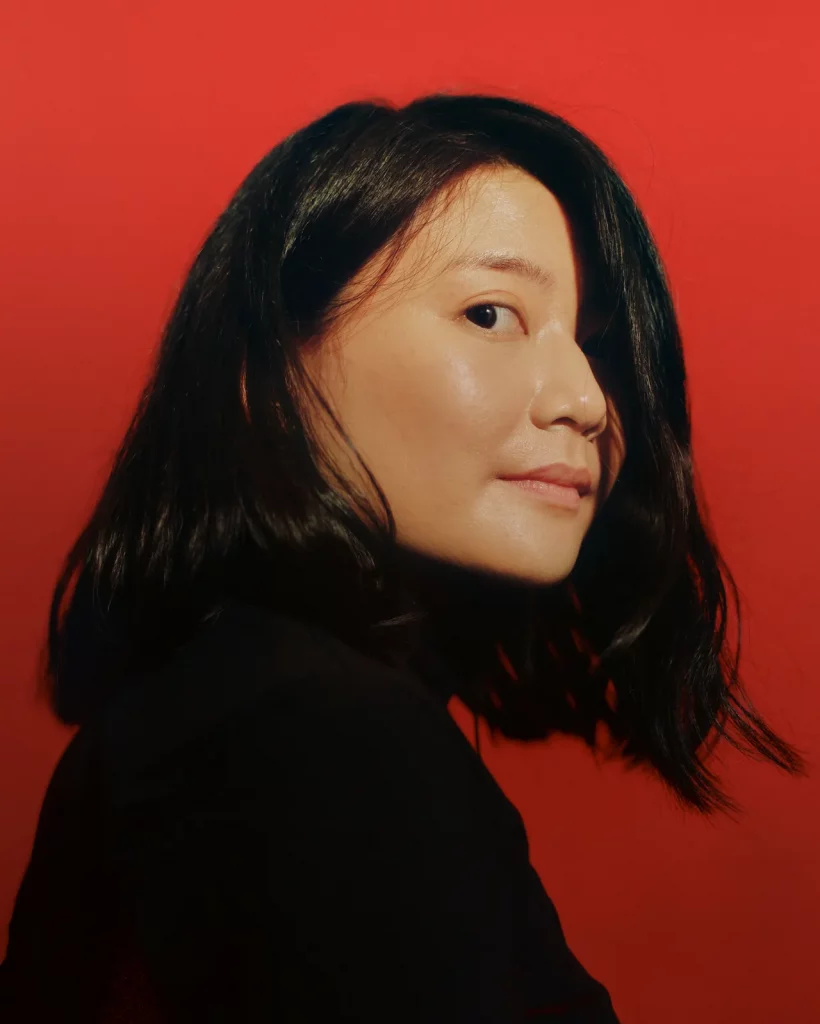
Keen Hung Lee, senior marketing manager, age thirty-three
Back in September, I was living in Chinatown. One day, when I was working from home, I went to Grand Street to pick up some pho for lunch. When I walked out of the restaurant, a guy just punched me wordlessly. He came out of nowhere and just delivered a blow to my arm. I asked him why he did that, and he looked at me and said, “You know why.” I was so tempted to fight back, because I suspected I was picked on for my size and my race. But I followed him and called the cops while recording everything on my phone. The police caught him, but he didn’t show up for his court date. That’s when I thought, “No one is going to save me. I need to learn to protect myself.”
How does it feel to be in class?
There’s a sense of relief, to be honest. I feel like I have an army of sisters.
By Jiayang Fan
https://www.newyorker.com/culture/photo-booth/asian-american-women-fight-back



1 comment
Reading your article helped me a lot and I agree with you. But I still have some doubts, can you clarify for me? I’ll keep an eye out for your answers.